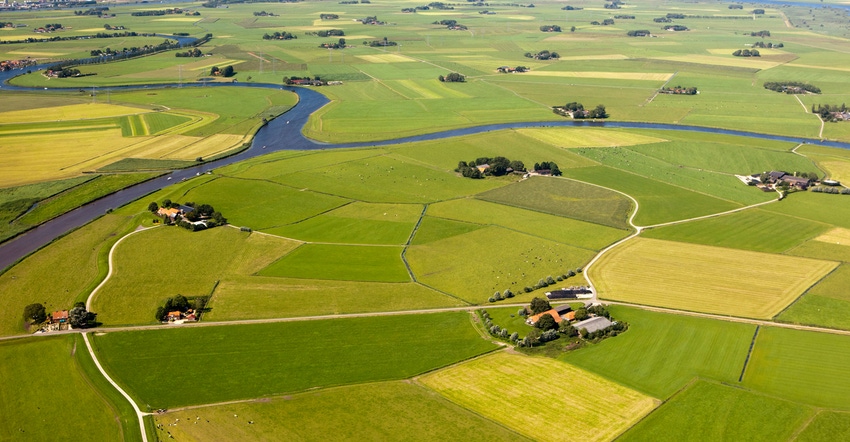February 7, 2020

By Ned Birkey
The year 2020 may be a new year and a new decade, but in the first few weeks, I already have had discussions about three old and recurring agricultural and environmental topics: karst and sinkholes and drinking water; sludge or biosolids and farmland; and cover crops and algae in Lake Erie.
Monroe County, Mich., has been documented to have karst geology and sinkholes since a 1901 project and report by William F. Sherzer of Wayne State University. There are or have been sinkholes in Whiteford, Bedford, Summerfield, Ida, Dundee, Raisinville and Berlin townships, and artesian wells and springs in Milan, Monroe, LaSalle and Erie townships.
Essentially, all of Monroe County has bedrock at or near the soil surface, increasing the potential for contaminates to leach into the groundwater or even Lake Erie.
All these geological phenomena are based upon the bedrock geology of Monroe County, elevation above sea level and flow of groundwater. Parts of Lenawee, Washtenaw, Wayne and Lucas counties have the same bedrock strata.
Attention to sinkholes and groundwater quality has died down since the proposed injection well kerfuffle in Summerfield Township about four years ago.
The danger of drinking contaminated well water has not gone away. Fortunately, no one in Michigan has died, as happened in Walkerton, Ontario, nor have hundreds of people gotten sick, as happened in Put-in-Bay, Ohio. Both situations were addressed at meetings open to the public several years ago.
Sludge or biosolids
Sludge or biosolids have been applied to farmland in southeast Michigan for about 50 years. The three main options for disposing of sewage and other waste from water treatment facilities include incineration, landfilling or land application.
The research into amounts and hazards of heavy metals, E.coli bacteria and other contaminates in waste has increased the knowledge of and improved the safety of the treatment procedures greatly over the past years. Many of the problems of water-based or dry biosolids remain in the attention to detail of the procedures of the land application process itself.
If done properly, there is little risk of contamination to the groundwater, and there is a benefit to crops and the treatment facilities in southeast Michigan — especially as more homes, businesses and industry are built.
Lake Erie has half of all the fish of the five Great Lakes and is called the “Walleye Capital of the World.” The algae situation in the western basin of Lake Erie is a result of several factors of the entire watershed area in Michigan, Ohio, Indiana and Ontario. Agriculture has been a contributing factor of nutrients, particularly phosphorus, providing for the growth and hazard of the algae situation.
Cover crops
Since former U.S. Secretary of Agriculture Tom Vilsack had the initial news conference at Cabela’s about nine years ago, there has been a concerted effort to promote cover crops as a prevention and management tool that farmers can use to keep nutrients on the land and out of the water.
For the 3.7 million acres in southeast Michigan in the Lake Erie watershed, many farmers have been willing to adopt one or more revised nutrient management practices.
Ohio requires most farmers to obtain a “fertilizer license” somewhat similar to the “pesticide license.” Michigan has adopted a voluntary compliance program for the entire state, including the Lake Erie watershed counties.
There is more that can be done, such as farmers encouraging other farmers to change and adapt to the environmental situation that affects everyone, not just in agriculture. Using cover crops is one management tool that can help with water quality to surround sinkholes, or as filter strips along drainage ditches.
Birkey is an MSU Extension educator emeritus from Ida Township, Mich., and owner of Spartan Ag.
Source: MSU Extension, which is solely responsible for the information provided and is wholly owned by the source. Informa Business Media and all its subsidiaries are not responsible for any of the content contained in this information asset.
You May Also Like




